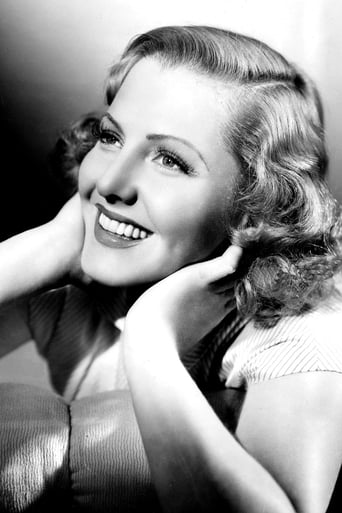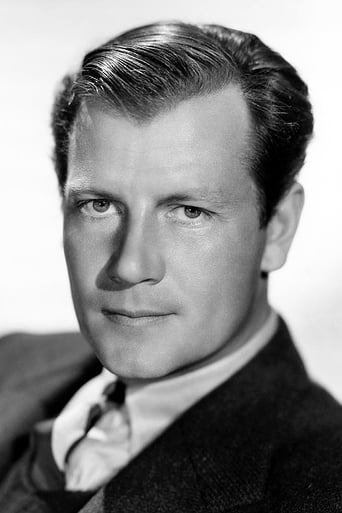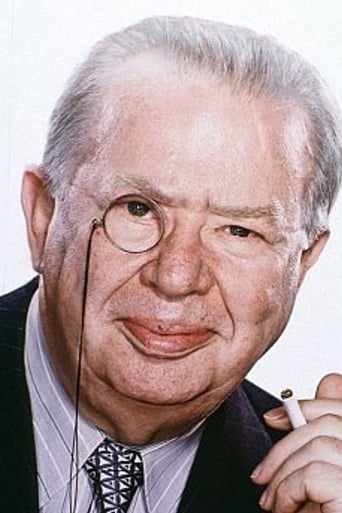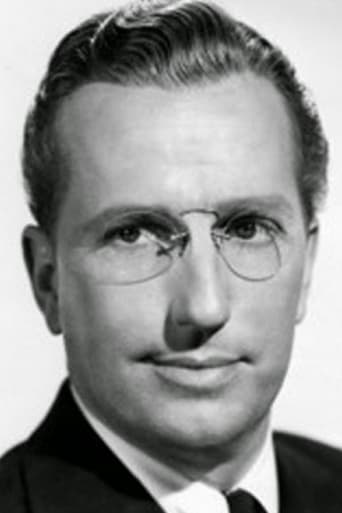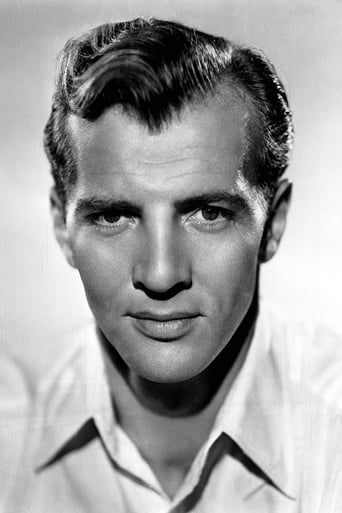GurlyIamBeach
Instant Favorite.
Moustroll
Good movie but grossly overrated
Baseshment
I like movies that are aware of what they are selling... without [any] greater aspirations than to make people laugh and that's it.
Fairaher
The film makes a home in your brain and the only cure is to see it again.
Eka Herlyanti
The film is pretty funny. I really like the old man. I can't imagine living in that era where vacancies are so hard to find, and women flirt with a man without any shame, trying so hard to get his attention. That was 1943, and how about now? Are men getting fewer and fewer? Btw, I think Jean Arthur's voice is so similar to Alicia Silverstone in Clueless. So cute, sweet and funny.
weezeralfalfa
This superior romantic comedy features Charles Coburn and Joel McCrea as short-stay transients in wartime Washington, D.C., looking for a place to bed down for about a week. Jean Arthur is a working resident looking for a roommate to help pay the rent , while doing a bit to relieve the severe housing shortage in the nation's capital, due to the influx of people to work in the offices and plants relating to the war. Joan put an ad in the paper, but failed to specify that she was looking for a female. Hence, she was shocked when Coburn showed up, having tricked the many other hopefuls into believing the position was taken. At first, Jean was adamant that she would not tolerate a man as a roommate, even an old grandfatherly-looking one. But Coburn blustered and bullied his way in to her spare room. He would soon get an earful of her mandatory wakeup routine, from 7 to 7.30, each morning. One of the comedic highlights of the film has Coburn trying to conform to her schedule......While Jean is at work, Coburn takes it upon himself to sublet half of his room to another street wander: McCrea. Some humor results from McCrea getting used to his new abode. Again, Jean is shocked that she has an additional male roommate, even if only for perhaps a week......In the morning, Coburn talks to a committee about the need for new housing, even if just temporary. Later, Coburn finds and reads the last part of Jean's diary, especially, her first impressions of McCrea. When she catches him reading, she goes through the roof, then goes to her room, and cries. She orders them to leave by morning. Coburn has a pre-arranged hotel room, so he's not too disturbed, but McCrea has only another 2 days before he leaves for Africa. Thus, she relents and allows him to stay those days. Well, as you can guess, romance eventually enters the picture. But there's a problem: Jean is engaged to a Mr. Pendergast. See the film to find out how things turn out......The most fun part of the film is the first part, where Coburn and Jean much interact. But, the last part isn't excessively dull. only in comparison....See it on YouTube
mmallon4
The More The Merrier represents the screwball genre adapting for the war years however this was at the end of the genre's original run. I wonder why there was not more screwball comedies made during the war period? Did people become more cynical with the war or perhaps the genre was simply made for the depression era. Instead of taking on the establishment like the genre screwball did during the depression, The More The Merrier is supporting it. It is refreshing to see a propaganda film from the war years which is less gloomy and shows how common folk got on with their daily lives during the war.My main flaw with The More The Merrier is Joel McCrea. He's fine but that's the problem, he's only just fine; a serviceable actor who doesn't leave a great impression. He's the weak spot of a trio of characters who could have been much stronger with a more charismatic actor. Granted this was during the war and most of Hollywood's big male leads where off in Europe kicking Hitler's ass. Could Cary Grant have played the role instead, but perhaps a big star like that couldn't play a role in he doesn't show up until half an hour in. The trio of characters still manages to be fun with Jean Arthur playing the straight man and Charles Coburn as an immature and conniving old man who still seems like a kid at heart; while the romance between Arthur and MrCrea is still believable and handled very well as they spend the final third of the film quietly denying their feelings for each other.Jean Arthur and Charles Coburn are one of the more unconventional screen pairings in Hollywood starring in three films together, just look at the morning schedule scene; comic choreographed brilliance and by far my favourite part of the film. When McCrea enters the picture though I feel it is never as strong. Also after you watch this movie you may find yourself saying "dam the torpedoes, full speed ahead!", a lot.
drmalama
I feel it's important to mention some caveats before I start gushing about this movie: I don't enjoy every single scene of The More the Merrier, the last comedy George Stevens ever directed. Occasionally the film feels dated, and all the casual talk about "Japs" is bound to make other modern-day viewers feel uncomfortable as well (though it's worthwhile to keep the context in mind). But when The More the Merrier hits its stride, it's funny, sweet, romantic, daffy, and everything a great screwball comedy should be. It's terrifically enjoyable without denying the realities of the time.We're in Washington in 1942, when the proliferation of war jobs and servicemen passing through resulted in a huge housing problem. Even an elderly retired millionaire like Benjamin Dingle (Charles Coburn), who arrives in the city as a Senate-sponsored consultant two days ahead of schedule, finds that he is not guaranteed a place to stay. The cheerful, gleefully manipulative Mr.Dingle finds a room for rent in the paper, fools a gaggle of other prospective tenants into getting out of his way, and railroads the apartment's occupant, prim government worker Connie Milligan (Jean Arthur), into letting him stay. She wanted to rent to a woman to prevent raised eyebrows among her neighbors (which, given the time, was certainly a risk), but she barely gets a peep in before Dingle's setting up shop.After unilaterally deciding that what his pretty, somewhat tightly wound roommate needs is a "high-type, clean-cut, nice young fella" (and epically failing at sticking to Connie's baffling morning schedule) Mr. Dingle proceeds to rent half of his room to another prospective tenant. He finds one in Sgt. Joe Carter (Joel McCrea), a soldier set to ship out to the front in a week. Dingle initially tries to keep Joe and Connie from noticing the other's existence, but that can only last so long. Connie is unable to kick out either of her new roomies and so attempts to adjust, though she makes it clear that she's engaged to her boss and so off the market. But Dingle, a self-appointed cupid, has other ideas--he senses that this Mr. Charles J. Pendergast is a stuffy bore (he's right), and slyly maneuvers Connie and Joe toward each other. It doesn't hurt that the two seem to operate on the same wavelength (an adorable early scene has them both doing the rumba by themselves in separate rooms). Eventually they cannot hide their attraction to each other, though the war inevitably gets in the way. The performances are what make The More the Merrier irresistible. Coburn, delightfully cheeky, won an Oscar for his turn as the benevolently Machiavellian matchmaker. But the chemistry between Arthur and McCrea deserves special mention. It's a wonder that their scene on Connie's front stoop got past the censors--while there's nothing R-rated, things get a little "tactile"--but it's breathtakingly sexy. The next scene, where the thin wall that separates their bedrooms allows them to talk to each other, is equally powerful in a more poignant, understated way. I think this movie has made me a lifelong fan of both actors. The film has some flaws--some slightly unconvincing crying, and the aforementioned "Japs" issue--but don't let that deter you. There's a reason the term "underrated classic" so often follows the mention of The More The Merrier. In some ways it's a product of its time, but its emotional grace notes about love, lust, and taking risks haven't aged a bit.
